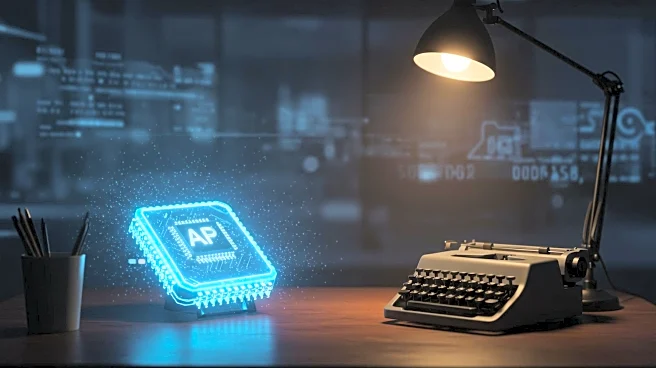What's Happening?
The increasing sophistication of artificial intelligence (AI) is prompting discussions about its impact on journalism and creative industries. As AI tools become more capable of generating content, there is concern about the potential for AI to replace human journalists. This has led to debates about the value of human creativity and the authenticity of AI-generated content. While AI can efficiently compile information and produce formulaic content, it lacks the creativity and personal touch that human writers bring to their work. This distinction is seen as a competitive edge for human journalists, who can offer unique perspectives and storytelling that AI cannot replicate.
Why It's Important?
The integration of AI into journalism and creative fields raises important questions about the future of these industries. As AI technology continues to advance, media organizations must navigate the balance between leveraging AI for efficiency and preserving the human elements that define quality journalism. The potential for AI to replace human roles could have significant implications for employment and the nature of creative work. However, the enduring value of human creativity suggests that there will always be a demand for content that reflects genuine human experiences and emotions.
What's Next?
Media organizations and journalists may need to adapt to the evolving landscape by finding ways to integrate AI tools while maintaining the integrity and authenticity of their work. This could involve using AI to enhance research and data analysis, allowing journalists to focus on storytelling and investigative reporting. As the industry grapples with these changes, there may be increased emphasis on training and education to equip journalists with the skills needed to work alongside AI technologies. The ongoing dialogue about AI's role in journalism will likely continue to shape the future of the industry.












